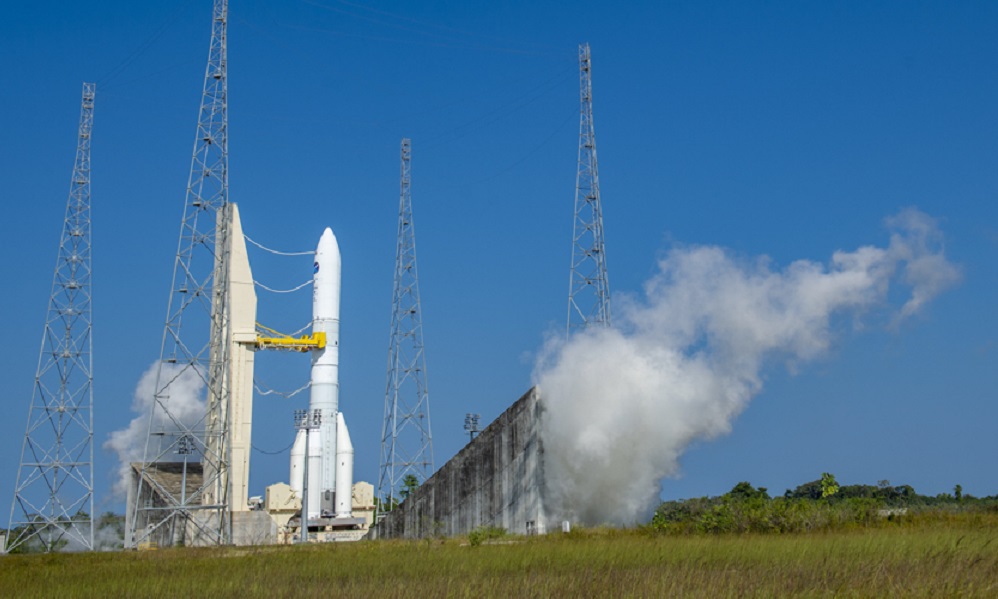Europe’s Ariane 6 launcher has passed a key rehearsal in preparation for its first flight, the European Space Agency (ESA) said this past week – part of efforts to bring the delayed rocket to the launchpad in 2024.
Definitive results will depend on an analysis of data in coming days following Thursday’s test, which went ahead after a pause in the final countdown caused by what ESA officials described as a “light anomaly”.
The test at the European spaceport in French Guiana involved igniting the core-stage Vulcain 2.1 engine and then running it for seven minutes, which is about the time it would take for the launcher to reach space, ESA said.
Ariane 6 is being developed by ArianeGroup, a joint venture between Airbus (AIR.PA) and Safran (SAF.PA), in order to better compete with U.S. private launch provider SpaceX.
Its predecessor, Ariane 5, flew for the last time in July and the smaller Vega C remains grounded following a failure in December last year, leaving Europe without independent access to space. Russia blocked European use of its Soyuz rockets last year in response to Western sanctions over Ukraine.
“We are back on track towards re-securing Europe’s autonomous access to space,” ESA Director General Josef Aschbacher said in a statement late on Thursday.













